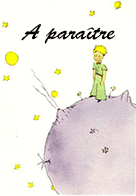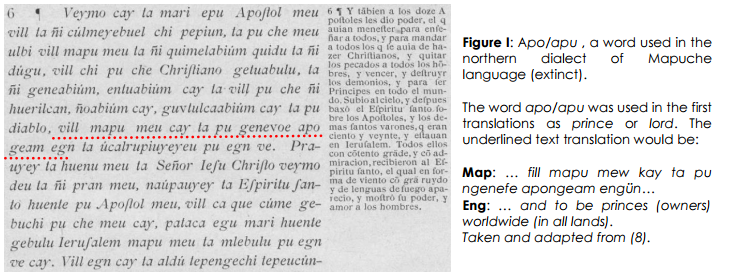The Little Prince in Mapuche
The Jean-Marc Probst Foundation for the Little Prince, founded in Lausanne in 2013, has the following goals:
– the expansion, preservation and maintenance of public access via the Internet to the world largest collection of books of The Little Prince by Antoine de Saint-Exupery;
– the promotion and further outreach of this universal work through the creation of new translations and publications
In this view, The Little Prince has been translated to languages of different types, namely: dead languages like Latin, Old English, Old High German and Old Egyptian in Hieroglyphic writing; artificial languages such as Esperanto and Interlingua; Creole (pidgin) languages like Papiamento and Seychellois; and American languages such as Quechua (3 varieties), Toba, Guarani, Yucatec Maya and Nahuatl (1).
Saint-Exupery’s most famous book has had an impact in areas such as linguistics, philosophy and modern children’s literature, and it has also given rise to countless works and adaptations that continue to increase their historical significance. One of the biggest impacts of its translations is the version in Somali language, which book is used in schools in the selfdeclare State Somaliland for language teaching. Thus, Le Petit Prince can be seen as a work that has a political and linguistic impact that is just being developed.
The next one will be Mapuche, a critically endangered language from South America. Mapudungun or Mapuche language, is an isolated language which historical territory included the area between the central valleys of Chile and Chiloé Archipelago, but it is nowadays bounded to the territory between the VIII and X regions of Chile, plus Andean foothills bordering these regions in Argentina. Current estimates indicate that there is no precise number of speakers of Mapuche language in Argentina, but they would be a few thousand people; the maximum number in Chile would be 200,000 speakers. Due to the old age of the speakers, and lack of transmission, this languages is expected to disappear in 40 years.
To avoid the loss of this human legcy, The Fundation propose a translation of Le Petit Prince into Mapuche language, which would mark a milestone in modern Mapuche literature, as it would be the first translation of a classic book of world literature. It is also seen as a work with potential to be used in the recovery of language in children, because they have no access to literature in Mapuche language, and since very recently they have been considered as a target audience for the few publishers that edit books in Mapuche language.
This project sprang to life from the work together to preserve the linguistic heritage of the Mapuche. It is estimated that this language will disappear in about 40 years. Survivors, if any, will have a very strong influence of Spanish on their linguistic psychology, and that is why we must urgently rescue the language through literary writings. Le Petit Prince can be a hope at this time of linguistic, cultural and political debacle that the Mapuche are facing.








